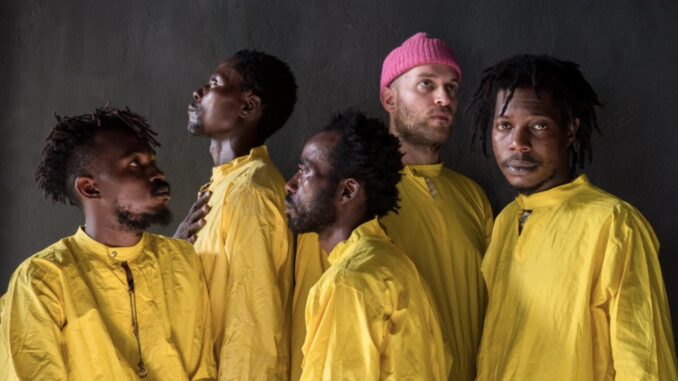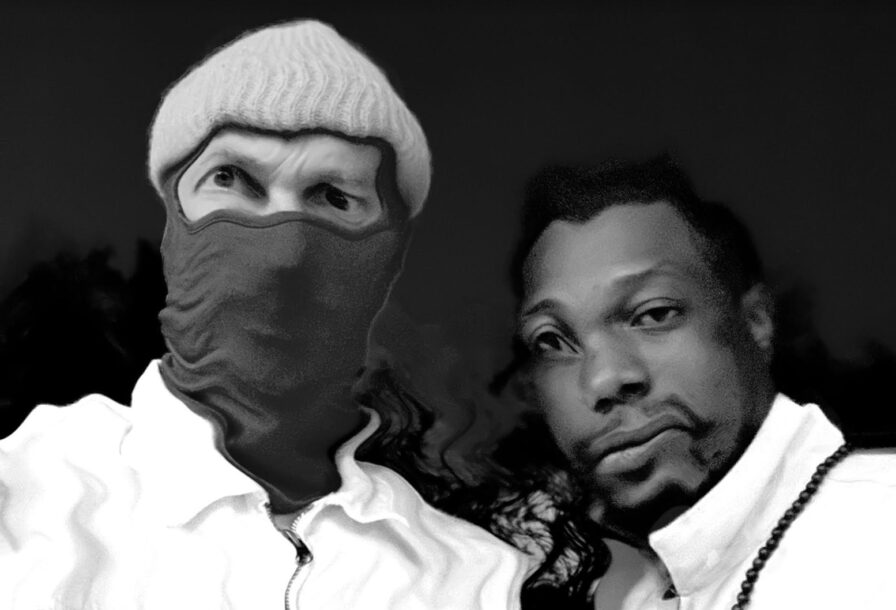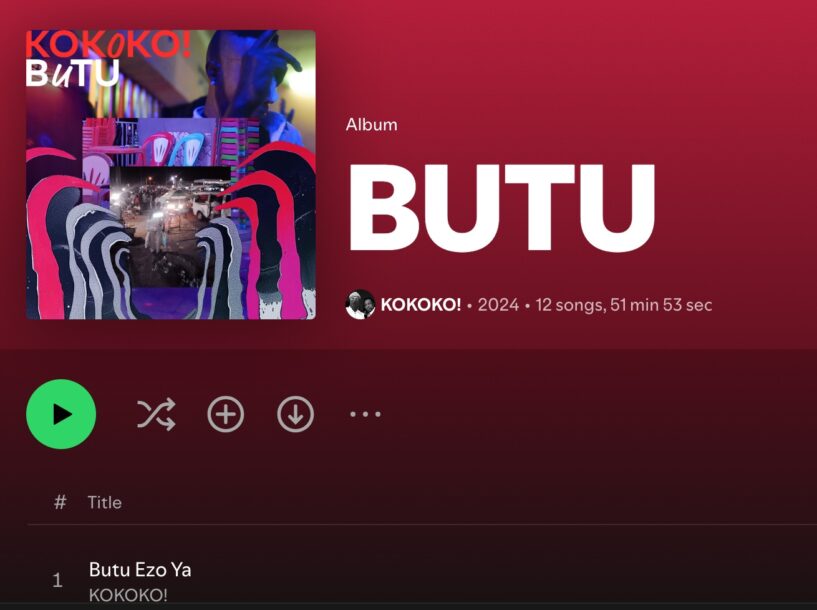
Review by AVA LIVERSIDGE
KOKOKO!, the Congolese group pioneering the new Kinshasa sound, recently released their third full-length project, BUTU.
KOKOKO! truly stand alone, not only in their eminence as Congolese musicians enjoying recognition on the global stage, but in their musical approach’s genre-bending impossibility. The group can both be situated in their home country—they remain loyal to the wealth of stylings indigenous to Congolese rumba and soukous—and remain completely placeless, averse to definitions.
KOKOKO! operate as collage artists: Lo-fi electronic production, energetic hip hop grooves, a subversion of traditional rhythmic arrangements, and an offbeat affinity for homemade instrumentation all have a place on the group’s winding discography.
This group’s project is a rare instance of genuine creation in the 21st century. While the veins of their musical influences remain vibrant and perceptible across the group’s work, the resulting product evades comparison. KOKOKO! doesn’t explicitly sound like anyone; BUTU doesn’t follow in the lineage of a record that preceded it. This peculiar synthesis exists in a vacuum and is, thus, difficult to both write and talk about.
LP BUTU, meaning “the night” in Lingala, was conceived to create a sonic document of the Congolese capital Kinshasa’s character after dark—the steady hum of life that never quite extinguishes, regardless of the hour. KOKOKO! manage quite seamlessly to make place into sound by employing found-sound techniques to weave samples of actual city sounds into their tracks. LP BUTU allows listeners to consider the music that is already present in daily life by elevating city noises to the status of musically intentioned.
Opener ”Butu Ezo Ya” welcomes the listener to Kinshasa with pitched field recordings of car horns and the soft babble of passersby. The track soon unfurls into an infectiously energetic combination of rhythmic chanting and frenetic electronic harmonies. It’s hard to tell if the blaring hardstyle interjections are warning sirens or party horns.

Throughout the record, KOKOKO! commits to rhythmic complexity, weaving rich polyrhythms from at least four different sources on each track—as is typical of most Central African sound, even the vocals serve in a rhythmic role, grounding tracks with call and response forms and ever-building chanting sequences. The blend of orthodox musical approaches with bonafide techno elements offered on BUTU complicates the average listener’s assumptions of contemporary Congolese culture. Track “Salaka Bien” samples ceramic kitchenware, pairing the ready-made percussion section with the dense fuzz of their bass synth. KOKOKO! seem to have a steady footing in Kinshasa, Detroit, and Berlin.
While the citizens of the Democratic Republic of Congo suffer flagrant human rights violations and an increasingly tense political climate, outsider perspectives easily simplify these individuals into statistics or victims of atrocity. KOKOKO!, a band with forceful activist origins, use surprising, and sometimes abrasive, instrumental constructions to dissent while still avoiding the great consequences that accompany spoken forms of protest in their country.
BUTU creates a complex, and certainly unforgettable, sonic identity for a people that have been flattened from the inside and out, by repressive nationals and uni-dimensional reporting. Moreover, the record captures the joy and pervasive vivacity that lives in even the most pedestrian corners of their home city: Car horns, the clatter of ceramic pots, and chattering friends are all mere sounds exalted to the status of music on BUTU. On their third full-length release, KOKOKO! celebrates their hometown, transforming daily life into a sonic artifact that is equally as complex as it is simply alive.
Check out KOKOKO! here:
Check out ‘BUTU’ here:

